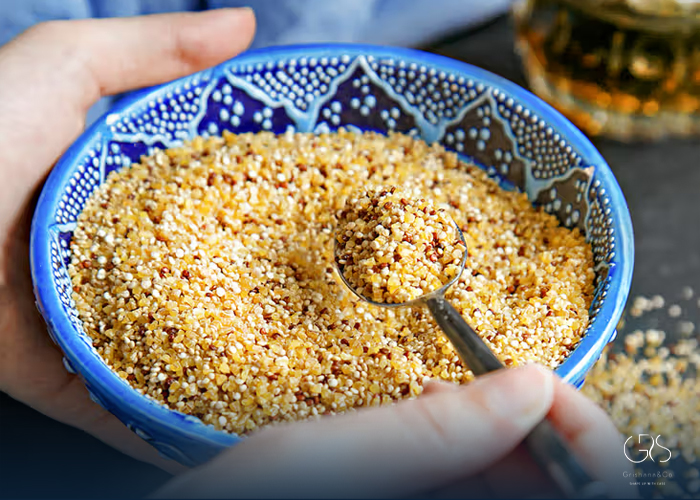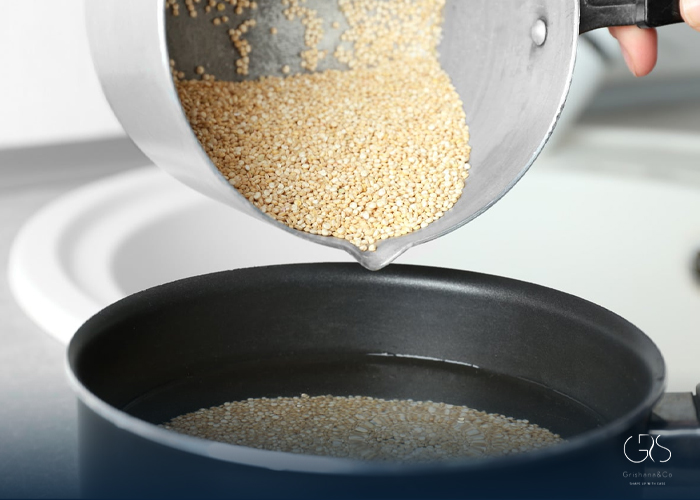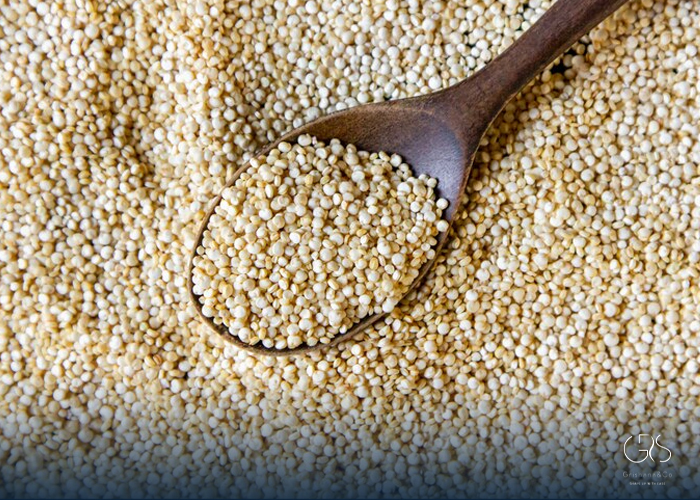In recent years, quinoa has gained popularity as a superfood due to its numerous health benefits. This nutrient-rich grain not only tastes great but also offers a wide range of advantages that can protect and enhance your overall health. From providing essential nutrients to helping manage weight, quinoa is a versatile ingredient that can be incorporated into various dishes to support a healthy lifestyle.
The Nutritional Powerhouse of Quinoa
Quinoa is a complete protein, meaning it contains all nine essential amino acids that the body cannot produce on its own. This makes it an excellent plant-based protein source for vegetarians and vegans. In addition to protein, quinoa is also rich in fiber, vitamins, and minerals such as magnesium, iron, and zinc. These nutrients play a crucial role in supporting various bodily functions, including metabolism, immunity, and muscle function.
According to a study published in the Journal of Food Composition and Analysis, quinoa is a great source of bioactive compounds such as flavonoids and antioxidants. These compounds have been linked to reducing inflammation, lowering the risk of chronic diseases, and promoting overall well-being.

Protecting Your Heart Health
Heart disease is a leading cause of death worldwide, but incorporating quinoa into your diet can help protect your heart health. Quinoa is high in fiber, which can help lower cholesterol levels and reduce the risk of heart disease. Its magnesium content also plays a vital role in regulating blood pressure and maintaining a healthy heart rhythm.
Research published in the Journal of Nutrition suggests that including whole grains like quinoa in your diet can reduce the risk of heart disease by up to 25%. The study highlights the importance of consuming nutrient-dense foods like quinoa to support cardiovascular health.

Weight Management and Blood Sugar Control
Maintaining a healthy weight and managing blood sugar levels are essential aspects of overall health. Quinoa can be a valuable ally in achieving these goals due to its low glycemic index and high fiber content. The fiber in quinoa helps you feel full longer, reducing cravings and aiding in weight management.
A meta-analysis published in the Journal of the American College of Nutrition found that consuming quinoa can lead to better blood sugar control and insulin sensitivity, making it a valuable addition to the diet for individuals with diabetes or those at risk of developing the condition.

Supporting Digestive Health
A healthy digestive system is essential for overall well-being, and quinoa can help support digestive health in multiple ways. The fiber content in quinoa promotes regular bowel movements and prevents constipation . Additionally, quinoa contains prebiotics that feed beneficial gut bacteria, contributing to a healthy gut microbiome.
Studies have shown that maintaining a diverse gut microbiota is crucial for digestive health and immunity. Incorporating quinoa into your diet can help promote the growth of beneficial bacteria in the gut, leading to improved digestion and nutrient absorption.
Enhancing Athletic Performance and Recovery
For athletes and active individuals, quinoa can be an excellent choice to support performance and recovery. Its high protein content is essential for muscle repair and growth, making it an ideal post-workout food. Quinoa also provides a good source of carbohydrates for energy, along with minerals like potassium and magnesium that help prevent muscle cramps.
A review published in the European Journal of Sport Science highlights the importance of adequate nutrition for athletes to optimize performance and recovery. Quinoa’s nutrient profile makes it a valuable addition to the diet of those who engage in regular physical activity.
Diverse Perspectives on Quinoa’s Health Benefits
While quinoa offers numerous health benefits, it is essential to consider diverse perspectives on its production and consumption. Quinoa has been a staple food in South America for centuries, particularly in countries like Peru and Bolivia. The increasing global demand for quinoa has led to concerns about sustainability and access to this nutritious grain for local communities.
According to a report by the International Trade Centre, the rise in quinoa consumption in Western countries has driven up prices, making it less affordable for indigenous populations in South America. Efforts are being made to promote sustainable quinoa farming practices and ensure fair trade that benefits local farmers and communities.
Conclusion
Quinoa is a nutritional powerhouse that can protect and enhance your health in various ways. From supporting heart health and weight management to promoting digestive health and athletic performance, quinoa offers a wide range of benefits for individuals seeking to improve their overall well-being. By incorporating quinoa into your diet, you can enjoy its nutrient-rich properties and contribute to a healthier lifestyle.
Remember that while quinoa offers numerous health benefits, it is important to consider the broader implications of its production and consumption to ensure sustainability and support local communities.
Sources
- Healthline, Quinoa 101: Nutrition Facts and Health Benefits
- Medical News Today, Health benefits of quinoa










